Whit Stillman's 'Metropolitan': An Oral History of the Preppiest, WASPiest, Wittiest Comedy of Heirs Ever
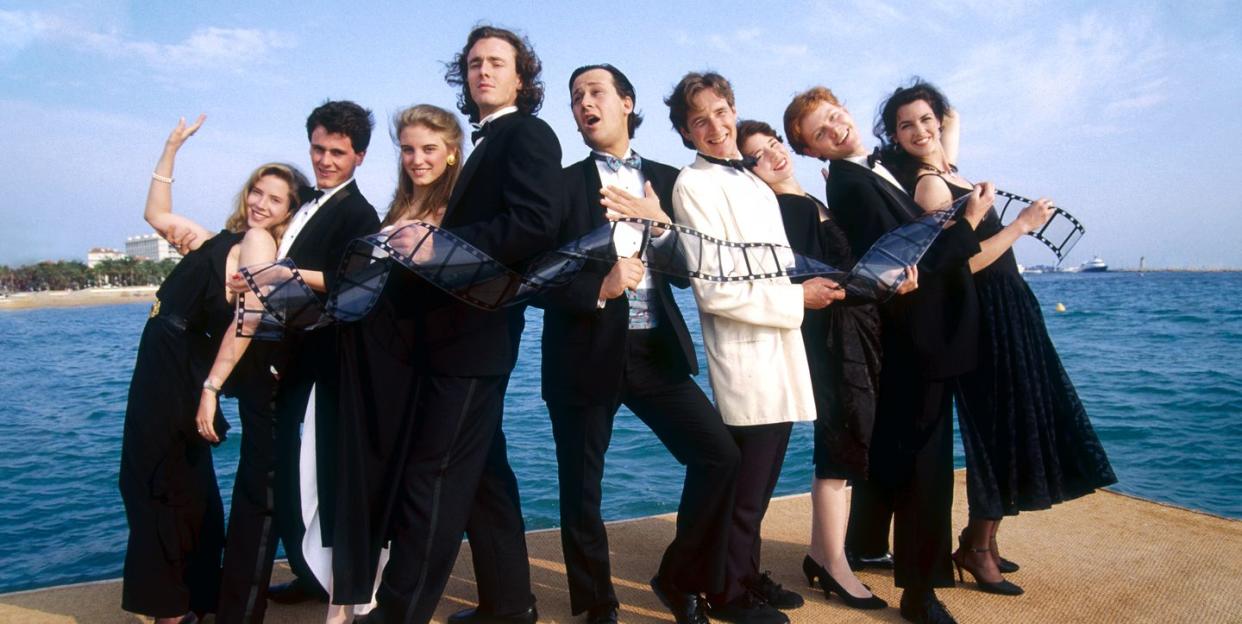
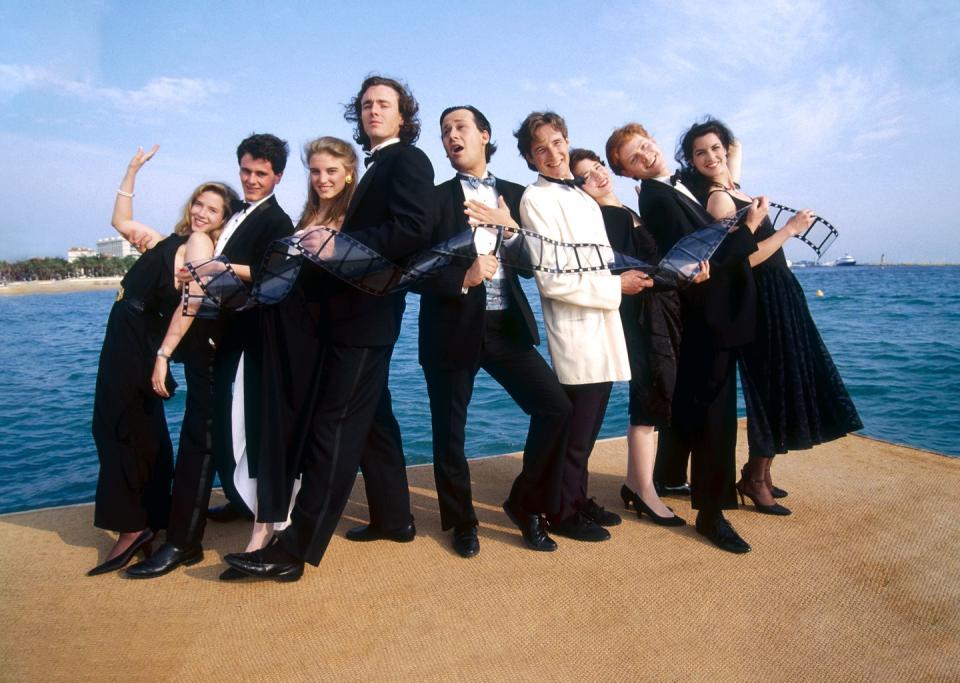
Whit Stillman’s Metropolitan started as a short conversation about how the upper middle class was “doomed.” Stillman scribbled the idea on a piece of paper in the summer of 1984. (A sample line of dialogue: “We hear a lot about the great social mobility in America… What is less discussed is how easy it is to go down.”)
Four years later, and Stillman finally got to make the film, a silver-spoon fantasy concerning Upper East Side adolescents during the Christmas debutante season, and the Upper West Sider, Tom Townsend, who infiltrates their circle. Lounging around parlors and playing games of “truth” (not dare, which was deemed déclassé) for as long as there is Cognac in one’s glass was the de facto past-time for the so-called “UHB,” or upper haute bourgeoisie who animate the plot.
Despite the almost make-believe preciousness of this cohort, in their finery, pearls and Brylcreem, and the bohemian splendor of their surroundings, the movie became an art house hit on a budget of $210,000 and “backed into”—Stillman’s words—an Academy Award nomination for Best Original Screenplay. The first-time director had managed to capture the charm of an overeducated and aimless youth, armed with too many cultural references but so little real-life experience that the only thing left to do is be too clever for its own good, usually while doing the cha-cha-cha.
Released 30 years ago this month, it's that innocence and whimsy that makes Metropolitan a still relevant cult classic, a witty, preppy Preston Sturges-style fantasy from a bygone era before celebrity and comic book heroes became the dominant forces in pop culture. (Its knowing, self-lacerating view of the leisure class couldn't be more au courant, by the way.)
And while it seems almost impossible that a comedy of manners like it would get green-lit today—Stillman made a pilot for Amazon in its early streaming days, but the series was not picked up—Metropolitan's influence can be heard in the verbal pyrotechnics of writer-directors like Noah Baumbach, Wes Anderson, and The Marvelous Mrs. Maisel creator Amy Sherman-Palladino.
This is how it all began.
A WASP's Revenge
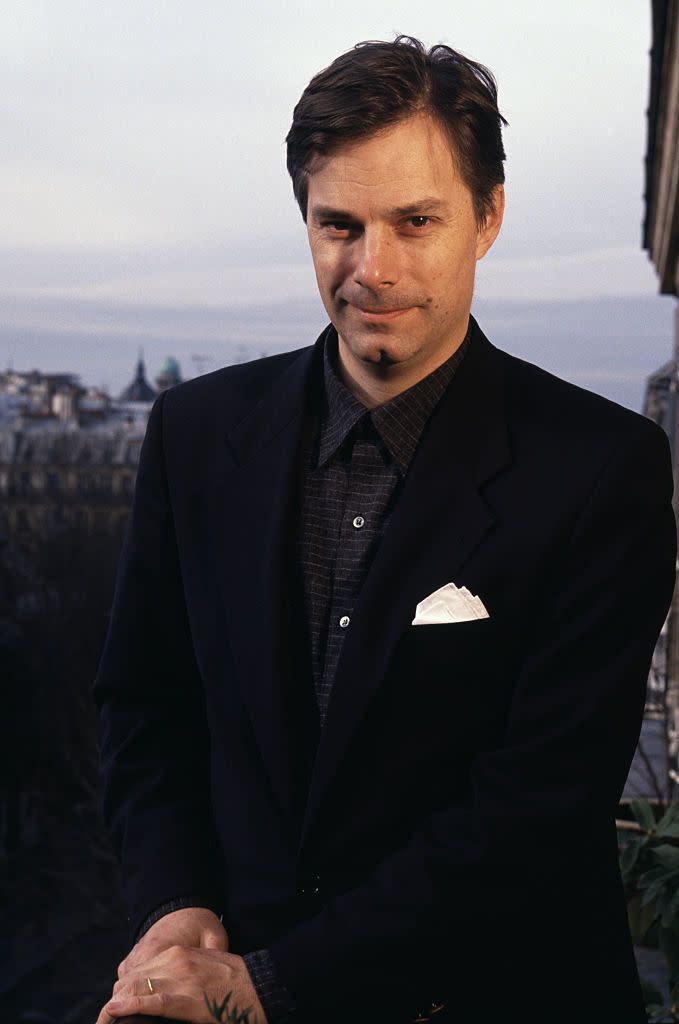
Stillman was born into the kind of privilege that would later color most of his films, attending elite prep schools in New York and Washington before heading to Harvard. But he left that world early enough—his father, John Sterling Stillman, the son of a Texas railroad magnate and later an assistant secretary of commerce in the Kennedy administration, divorced his mother, Margaret Riley, in 1965—to have both the insight and distance to astutely lampoon its pretensions. By the time he graduated Harvard, Stillman only had $2,000 to his name. When he hit on the idea for Metropolitan, he risked it all: he worked nights and weekends to finish a 150-page filming script and sold his apartment to fund the production. When the film premiered, with his acerbic take on the pampered WASPs of the Sally Fowler Rat Pack, his father stopped talking to him for a while. He had clearly hit a nerve.
Whit Stillman (director): I’ve been homeless since I sold my apartment to finance Metropolitan. I started writing the script in the summer of ‘84 at night, and on weekends, and vacations. I was at a cousin’s wedding in Cuernavaca, Mexico, and right in my cousin’s little office I got to the end of the script. I said, “I can’t believe it!” Then I started working on the film. I placed an ad looking for cinematographers, and a fellow named John Thomas answered the ad and we met. We decided to make the film together.
John Thomas (cinematographer): In December of 1988, Whit and I went out with this camera. We were doing Christmas scenes. The film was taking place at Christmas, but we knew that by the time we started principal photography, it was going to be early 1989 and Christmas would be done with in terms of decoration. So we went out and shot real debutantes outside of the Waldorf Astoria. On Christmas Eve, the two of us went to St. Thomas, an Episcopalian church on Fifth Avenue, and we shot this processional. I don’t know if you remember Audrey crying [during Christmas Eve mass]? We shot her side of it months later.
Taylor Nichols (Charlie Black): I saw a casting in Backstage magazine, and I went to an open call. There were probably 500 people there. I almost didn’t stay. But I did and I think I was the first person cast. Whit and I and John Thomas went around New York before we started shooting, and shot me walking in and out of parties, saying a few lines here and there, so we could get some of those big debutante parties that were happening around the holidays.
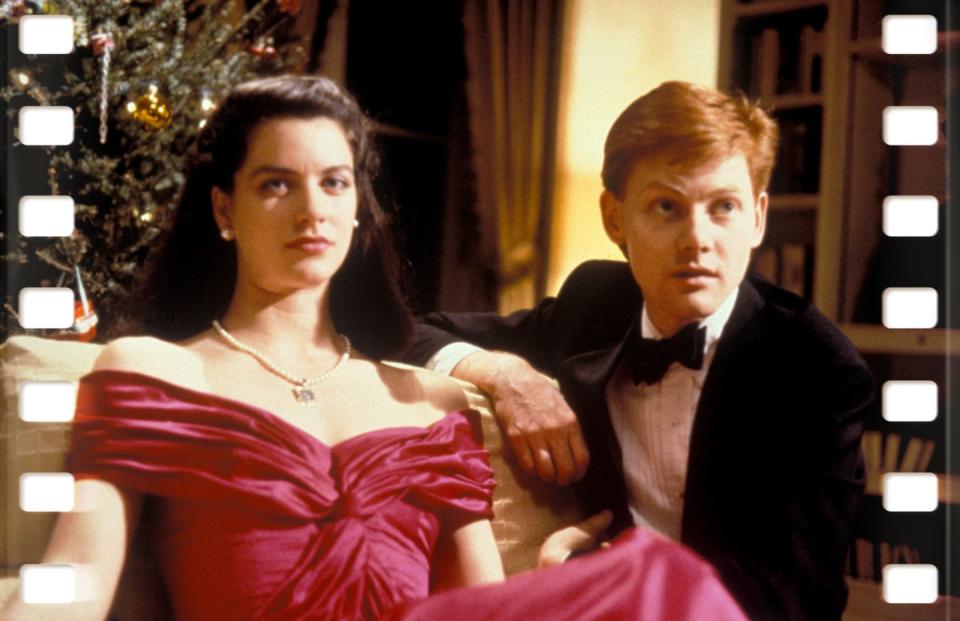
Carolyn Farina (Audrey Rouget): I was the third person to show up. The ad said they were looking for preppy-type people, so I did my best to look preppy. It was my birthday, and so I had a ton of change in my coat because I wanted to make some phone calls at a pay phone. After the audition was over, I turned around and all of the change fell out of my coat. As I’m standing there, apologizing, Whit asked me to come back later that day. It was my first big part.
Isabel Gillies (Cynthia McLean): I was in my freshman year at Rhode Island School of Design. There were no independent films; that wasn’t really a thing back in ‘89. Whit had a hard time casting, and he started to call the schools in New York. The director of the drama department said, “Well, there’s one girl, but she’s gone to art school.” Whit looked me up in the telephone book, called my parents, and said, “I’m a director, I’d love to get her a script.” They told him to send it to RISD. So I got the script, read it, and thought, "This sounds smart to me, is it a porno?" But I auditioned and got the part. The shooting schedule was in winter term, and I had a class that started at 9 a.m. We would go to work at 6 p.m. and shoot until 6 a.m. And then I got in a hired car and I would go to sleep in the back of it and get driven to Providence to attend school.
Ed Clements (Tom Townsend): I saw the audition ad and thought, I don’t fit that profile, but someone at my school said, “No, no, you should go.” I read for [the part of] Charlie. Apparently some casting director said, “I’m going to cast this guy as Tom.” They said, “Don’t cast him, he’s got red hair. Nobody casts redheads in lead parts.” I hadn’t heard that until after the movie had been out for years.
Stillman: At this screening at Sundance, a very good casting person came up to me and said, “You broke all the rules, having a redhead be the lead.” I didn’t know that rule. I haven’t done it since!
Chris Eigeman (Nick Smith): I was a valet, parking cars at The River Café, a restaurant in Brooklyn. You would scour the auditions in Backstage at that time. I knew that there would be a huge turnout because the biggest pool of actors will always be people who can play 18 to 22. The line was huge. I didn’t get the part [of Nick]. It was given to Will Kempe, who went on to play Rick Von Sloneker. They were shooting for a couple of days, then Whit thought it would be better for him to play that other part, and I got a call to show up on set that evening.
Stillman: There was some casting drama at the last minute. I wanted Chris Eigeman to play Nick Smith, but this actor came in who seemed to be Nick Smith. But he had really long hair. He came in after he cut his hair. He had cut some, but not what I consider a haircut. I said to [producer Brian Greenbaum], “I just can’t agree to this hair situation; it’s not right for the movie.” Brian said, “If you recast now, I quit.” So I said, “OK, go ahead.” We synched the dailies, and it was clear that the chemistry between the actor who was playing Nick Smith [Will Kempe] and Ed Clements, who was playing Tom Townsend, didn’t work. [Will] was enormous, really intimidating. Kind of a scary guy. So I called Chris Eigeman.
"Nobody’s Ever Going to Watch It”
Nichols: I didn’t understand half of [the script]. I loved it because I enjoyed reading it, and the passion that Charlie has. I spent more time looking things up in the dictionary the first week or so than really laughing at the jokes.
Gillies: His writing was so good that even as this idiot 18-year-old, I thought, this has got a point of view. Instinctually, it felt elevated. I certainly knew people were debutantes. I had grown up in New York, but it was a stretch in that nobody spoke the way those kids did.
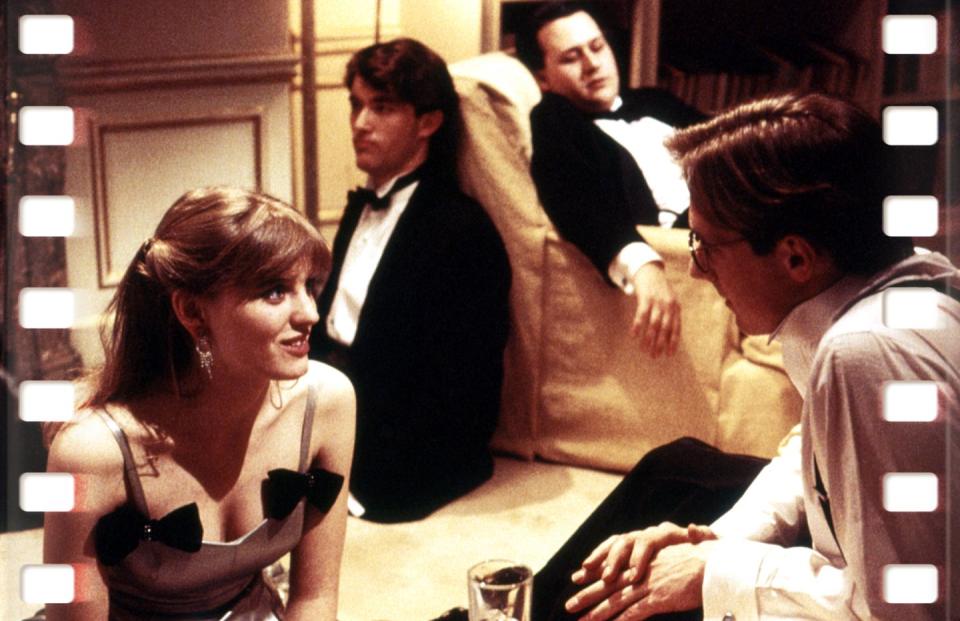
Eigeman: The script had a literary quality that I found very appealing. Nick had incredibly long runs that would go on for two pages. Whit would always invoke this notion of “exquisite bullshit.” That was helpful.
Allison Rutledge-Parisi (Jane Clarke): When we were shooting it, there were many moments where we would turn to each other and go, “My God, this thing is so fucking slow. Nobody’s ever going to watch it.” [laughs] Yeah, it’s a great script, but this is ponderous. [Talking about socialism] was not a stretch. That was really familiar. In college, that’s what you do—talk about concepts while flirting with each other, and then you have sex.
Farina: Fourierism—I had to look that up. I was unfamiliar with Fourierism and debutantes.
Stillman: I’d read Robert Heilbroner’s The Worldly Philosophers. Each chapter is a different economist’s point of view. One was [Henri de] Saint-Simon. I’d read a Saint-Simon chapter and think, "Maybe I’m a Saint-Simonest." I’d read a Fourier chapter and think, maybe I’m a Fourierist. I’d change my socialist politics for each chapter. I thought that would be funny for the Tom Townsend character.
Clements: I have to be honest, I think I’m more like Sally [Fowler] when she says, “Good luck with your Fourierism!” That was as much as I knew about Fourier. I didn’t even know a lot about socialism. I realized as Whit introduced us to some of the real-life people he had gone to school with that they were profiles of some of the characters. When we met some of those people, I realized, “Oh, I must be Whit.”
Nichols: I was aware that it was a biopic. We were different sides of Whit’s personality.
Stillman: They say you put a little bit of yourself into your characters. In my mind, I was closest to the Charlie character, the “doomed bourgeois,” and Tom. I guess I could get in a Nick Smith mode, but Nick was someone who really had an inspiration: Chris Gray, who wrote a column in the New York Times Real Estate section. I met him early in my period of trying to break into that New York world. He was intimidating, someone you could dislike, but I really got to like him. He would always pretend to be a big snob. He sadly died a couple of years ago.
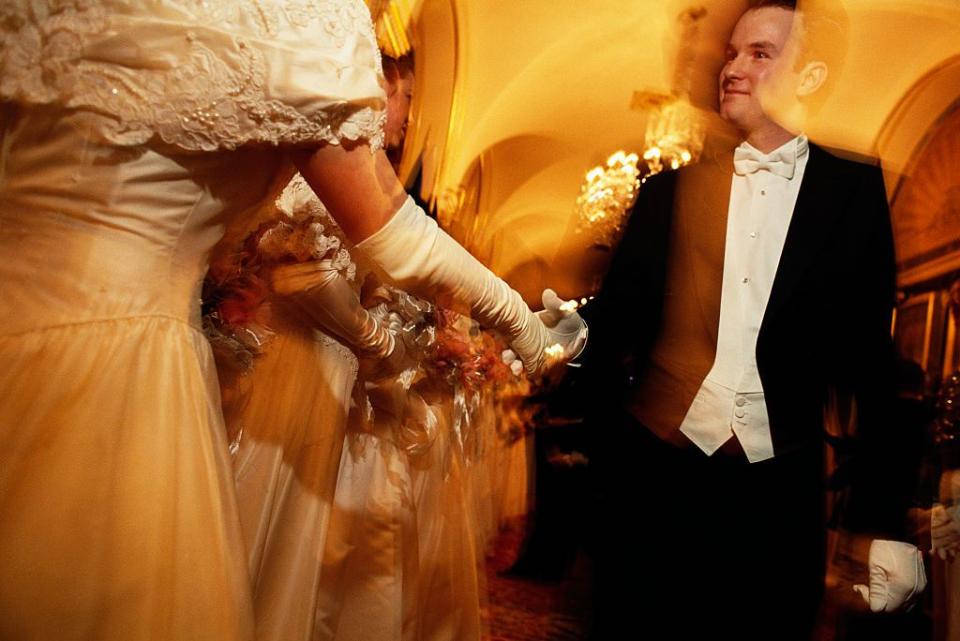
Doomed Debutantes at The Plaza
Filming began during n “arctic outbreak” at the start of 1989, one of the coldest winters in New York's history. Dopey comedies like Bill & Ted’s Excellent Adventure dominated the box office and The Cosby Show and Roseanne duked it out on TV for the #1 spot in the ratings. Stillman, meanwhile, was getting ready to film a movie about a kind of polite society that was dying if not already extinct. He had a paltry 30 days to get the movie in the can and secured three locations for production, including the grand former townhouse of the famed lyricist Alan J. Lerner, where he could only shoot between 6 p.m and 6 a.m. Other locations, like the Plaza Hotel, they used on the sly.
Gillies: We were paid $70 a day, $50 deferred. It was not a lot of money [laughs]. It was more about the learning experience.
Nichols: I don’t think we ever saw that $50. It was most of [the cast and crew’s] first film. The fact that the director stayed after everything was done and vacuumed the set all seemed natural to me.
Stillman: The Foundation [we shot in] was operating during the day. I would be there at 6:30 a.m., 7 a.m. vacuuming, trying to make sure everything was ship-shape, because I was terrified they would throw us out. The early risers would be coming in.
Thomas: I don’t know how [the actors] did it. They’d work all day and we’d shoot at night. I remember quietly waking them up when they were off camera, so they could deliver their lines. When the camera was on them, they were solid.
Eigeman: We didn’t have a permit to shoot at the Plaza. We would sneak in. I would usually have a walkie talkie. [Production] would tell me they were ready, then I would tell them, “We’re walking through the lobby.” I’d put the walkie talkie in my back pocket and we’d walk down the stairs of the Plaza and we’d start acting.
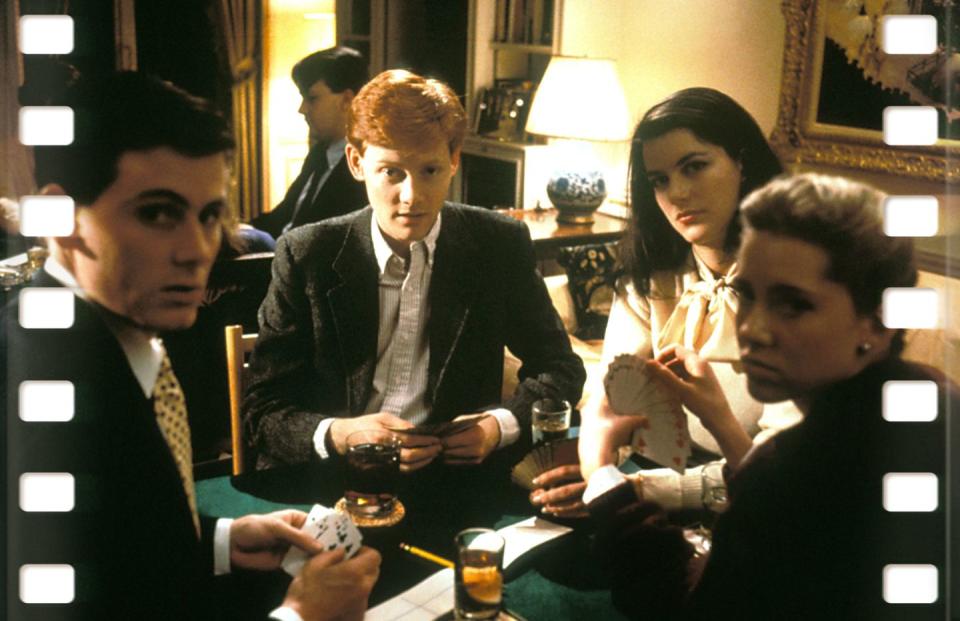
Thomas: We had a couple of lights. We put them not too close to the Plaza to illuminate the scene, and we got that scene but we did manage to upset some diners because one of our lights was shining in the window.
Clements: It was the coldest winter in New York. The big joke on set was that I had a lining to the coat [I wore]. Well, the coat didn’t have a lining. Sadly, the coat got stolen off the costume truck one night. Thankfully, my dad had an old coat from the ‘50s, and we pretended that Tom got it as a Christmas present. That’s why you see me wearing it in the last few scenes.
Nichols: There’s a scene when we first get to the house in the Hamptons. We’re walking around the back of the house and we find some girl’s underwear on the lawn. I pick it up, and Ed says something like, “Oh, that’s Rick’s little thing.” I put it in my coat pocket. That was my coat, and that was one of the last shots we did. Later, when I put on my coat, that underwear was still in my coat pocket. I have kept that pair of underwear—it’s in my sock drawer to this day. It was a little trinket that, for some reason, has stayed in my sock drawer all these years.
Rutledge-Parisi: My character Jane is kind of a bitch. I’m not a bitch, but she has this intensity that was comfortable to inhabit. So I understood why that was my part. Jane is intensely focused on what she wants. I don’t think Jane recognizes herself as a bitch at all.
Gillies: I didn’t love my character Cynthia being called a “slut.” I didn’t love anybody slut-shaming or anything like that. I didn’t want to play that. So I remember talking to Chris Eigeman about that. He said, “You know, Cynthia is the only one that tells the truth.” I was like, “That’s right!” And I could get behind that. You can get mad at me, but what I’m saying is true.
Nichols: Being a “slut” in a Whit Stillman movie is hardly a scarlet letter. [laughs] It’s taken me a long time to come to terms with [my character]. At the beginning, I thought Charlie was a little soft. He was a bit too sincere, too earnest. I’ve come to see Charlie otherwise over the last 30 years. Now, I see him as the heart and soul of the Sally Fowler Rat Pack.
Charming After All These Decades
Metropolitan screened at the Sundance Film Festival in February 1990, a year after Steven Soderbergh’s sex, lies and videotape became a phenomenon and pushed independent cinema to the mainstream. Bolstered by word-of-mouth and reviews from the likes of Roger Ebert, the film hit the Cannes Film Festival and opened in theaters on August 3. Eventually, it grossed close to $3 million but had the dubious distinction of scoring an Oscar nomination in the same category as Ghost, which had unexpectedly become the year's highest grossing film. Some of the actors, like Eigeman and Gillies, continue to work, appearing in shows like Gilmore Girls and Law & Order. Others took different paths, like Clements, who left his upstart career to become a reverend in Toronto, and Rutledge-Parisi, who now works at another Metropolitan, New York's Museum of Art. All that seemed improbable when Stillman reunited the cast at his apartment after the success at Sundance to explain to them that their lives, as well as his own, were about to radically change.
Rutledge-Parisi: I did not think it was going to do anything. I thought we would watch it in Whit’s mother’s basement. I got a call from Whit and he said, “I need you to come meet me in TriBeCa.” The rest of the cast was there at his apartment. Dylan Hundley, who played Sally Fowler, grabbed me and said, “Isn’t it exciting? Isn’t your phone ringing off the hook?” I had no idea what she was talking about.
We all sat around, and Whit said, “Your lives are about to change.” Isn’t that thrilling? He said it was a hit at Sundance, and that it was about to go to the Cannes Film Festival and we were about to do a lot of press, so to make sure our headshots were up to date.
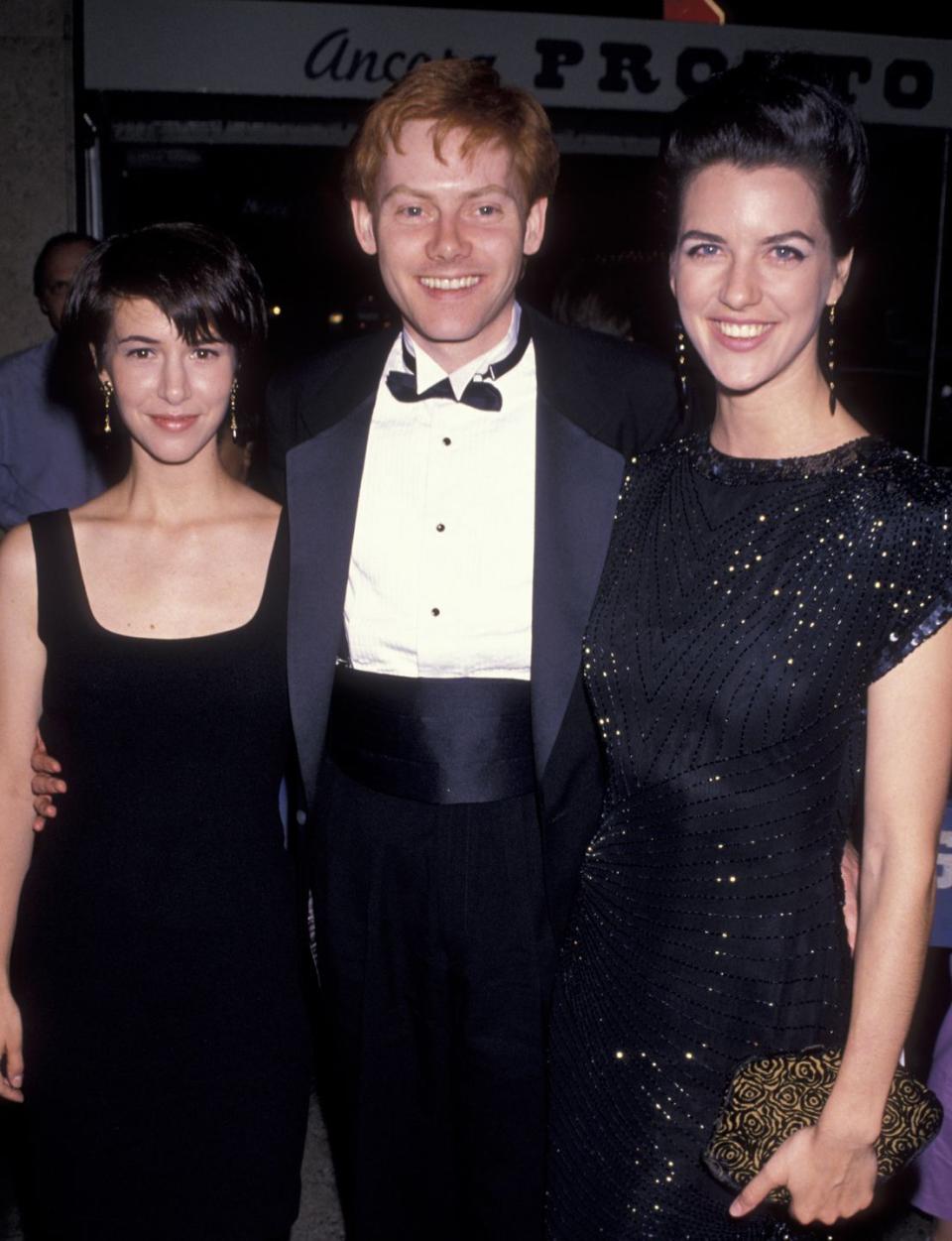
Farina: After Metropolitan, I started working at Macy’s. I had just done an interview with People, and so everyone knew where I worked. I remember people coming up to the counter, saying, “Are you that debutante from Metropolitan?” I said yes, and they said, “Guess things didn’t work out so well, huh.” The audacity!
Gillies: I was in my living room, and I remember my father tossed the Arts section of the New York Times over to me, and I was on the cover of it. I was like, “What?! I don’t get it.” When you’re that age, you do one thing and you’re on to the next. So when we got nominated for an Academy Award, it was like, “What? You’re kidding me.”
Rutledge-Parisi: I moved to L.A. after Metropolitan broke, and had agents and a manager, but I didn’t have money. In between auditions, I cleaned houses. We were nominated for an Oscar, but meanwhile, I’m cleaning houses to make enough money to buy this knock-off dress. This guy whose house I was cleaning said, “You look just like that debutante in Metropolitan.” I said, “I am that debutante in Metropolitan.” He called up a friend and said, “Larry, this debutante from Metropolitan is cleaning my bathtub!”
Clements: There’s a passage in the Bible that says, “Don’t despise small beginnings.” In other words, you won’t know what something may become just because of what it looked like at the outset. None of us really knew where Metropolitan would go. It started at Sundance, then went to New York [Film Festival], then it went to Cannes, then back to Toronto. Then California for the Oscars.
Nichols: Whit’s script opened the door to people telling their own personal stories.
Rutledge-Parisi: No one had done that before. No one had said, “I’m going to use my credit card, make a film and see if it gets somewhere.” It was so novel, whereas now, everyone makes a film and hopes that it will get somewhere. It’s amazing to have been able to have been a part of that.
Eigeman: Metropolitan does two things really well: It has a lightness of touch, and it has this charming way of not judging the characters. And because it had success economically, and was made for so little, it became encouraging for other people.
Stillman: I’m glad I didn’t see the films at Sundance the year before us, because it would’ve been intimidating. I think the only person who was influenced at all [by Metropolitan] was Noah Baumbach, whose film was related to it.
Farina: Metropolitan meant everything to me to this day. It’s one of the most wonderful experiences I’ve ever had.
Clements: Without Metropolitan, my life would not be the same. I don’t want to overstate it, but if it weren’t for that and all the places it led me to, I don’t think I’d be alive today and I don’t think I’d be doing what I’m doing today.
You Might Also Like

